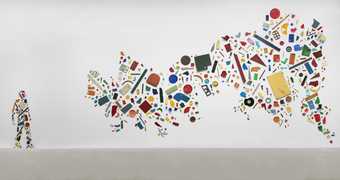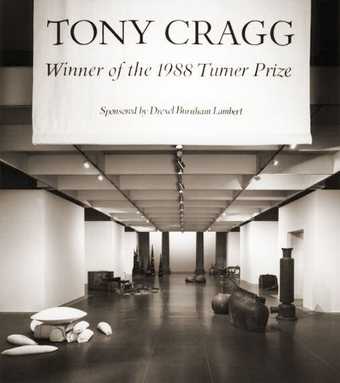Cragg’s method of dispassionate ordering and composing seeks to make evident the vast array of objects and images that surround us, but with which he feels modern man has only a superficial relationship, based on function alone. In order to enhance our imaginative and emotional relationship with the world at large, Cragg proposed beginning with physical matter as the fundamental basis of experience. To this end, in the early 1980s, he began to work with objects arranged on the floor or wall in simple configurations, such as Postcard Union Jack (1981; Leeds, C.A.G.), made from sherds of plastic, or an axehead composed of various real and fake wooden elements. By 1985 he had extended his range to include carved and machine-cut stone and cast bronze and iron to make sculpture of simple, generic images or standardized prototypes, such as a house or a test-tube.
Turner Prize 1988 artists: Tony Cragg
Tony Cragg's work is notable for its exploration of different materials, including found objects and raw matter of various kinds.


